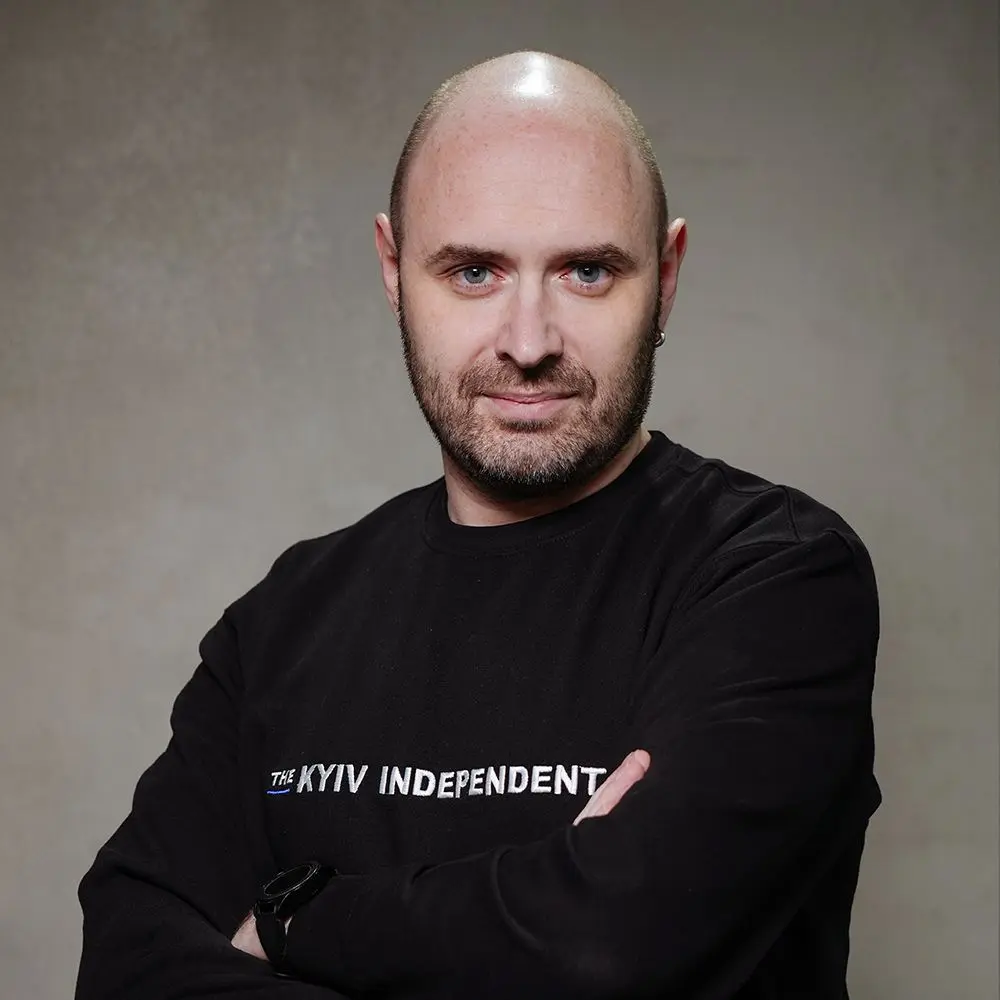Editor's Note: The story is based on the documentary "Destroy, in Whole or in Part," published by the Kyiv Independent's War Crimes Investigations Unit.
Since the start of the full-scale invasion, Russia has committed thousands of crimes in Ukraine.
Ivan Vyhivskyi, the National Police head, said that Kyiv is investigating over 100,000 war crimes cases committed by Russian troops in Ukraine. Among them are some of the most horrendous crimes – deliberate murder, torture, and rape of civilians, and the kidnapping of Ukrainian children.
The Russian army has been well documented to execute Ukrainian prisoners of war and to perform a wide range of crimes.
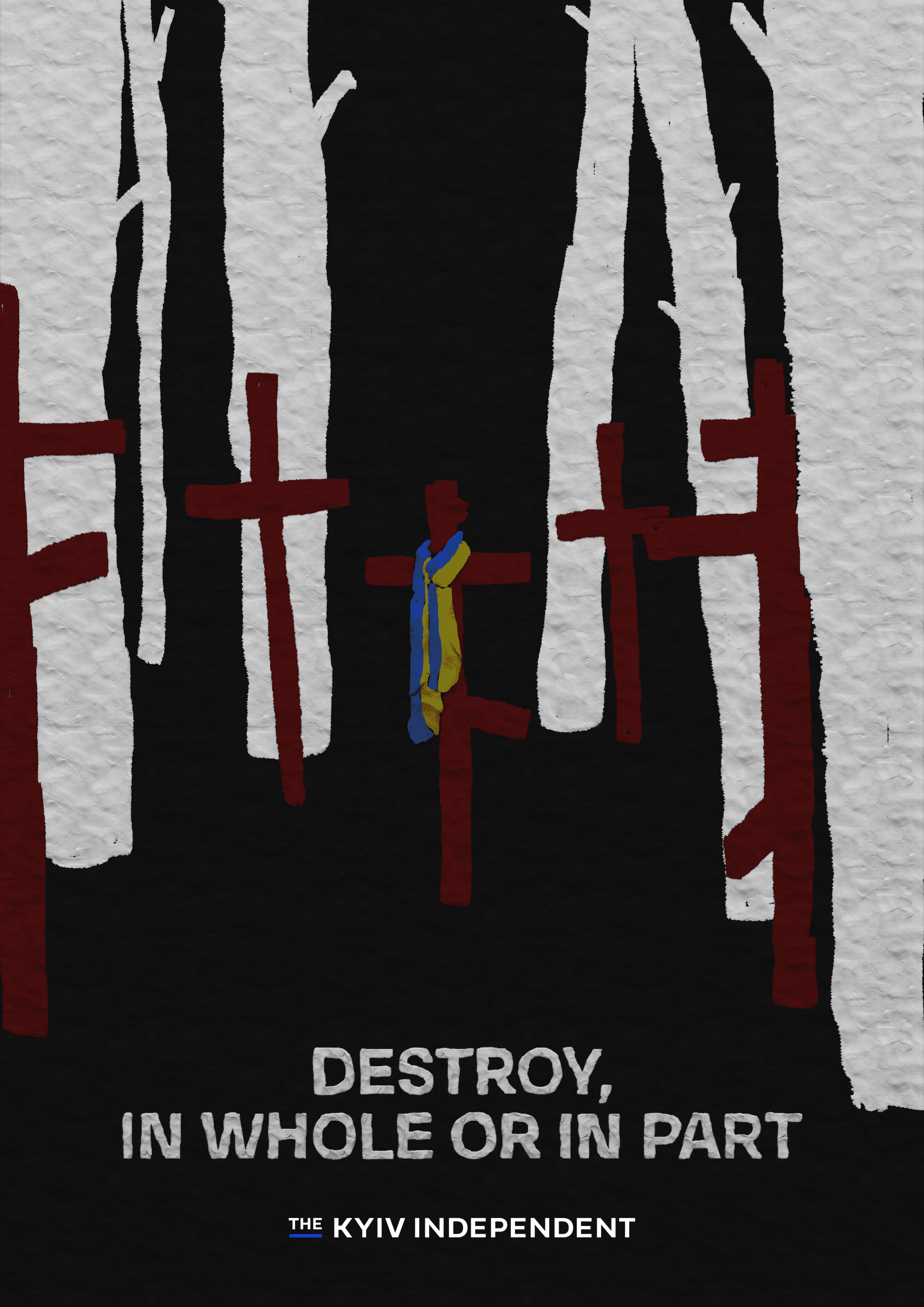
Russia has also gone a long way in its attempt to destroy the Ukrainian language, culture, and statehood, with the country's state-controlled propaganda putting an emphasis on "re-educating" Ukrainians to become Russians.
A regular theme of Russian propaganda is the need to "erase the Ukrainian nation," and murdering those who don't agree to become Russian.
The Kyiv Independent's new investigative documentary "Destroy, in Whole or in Part," tries to answer the question – do Russian actions in Ukraine constitute genocide?
Read the interviews with three renowned experts on the topic of genocide –
- William A. Schabas, professor of international law at Middlesex University
- Eugene Finkel, professor of international affairs at Johns Hopkins University
- Dmytro Koval, associate professor of international law at Kyiv-Mohyla Academy in Ukraine.
Do mass killings of civilians committed by the Russian army in Ukraine amount to genocide?
Finkel says that killings in Bucha and other towns in northern Ukraine convinced him that genocide was taking place.
"What was happening in Bucha and other places was a deliberate targeting of people who we would consider as Ukrainians. Not ethnically but nationally," Finkel says.
"Activists, state officials, veterans, and even simply people who spoke Ukrainian or who were considered patriotic. There was evidence of kill lists, of Russian soldiers going house to house looking for people. So it wasn't some drunk, trigger-happy soldier. It was pre-planned, and it was deliberate," he adds.
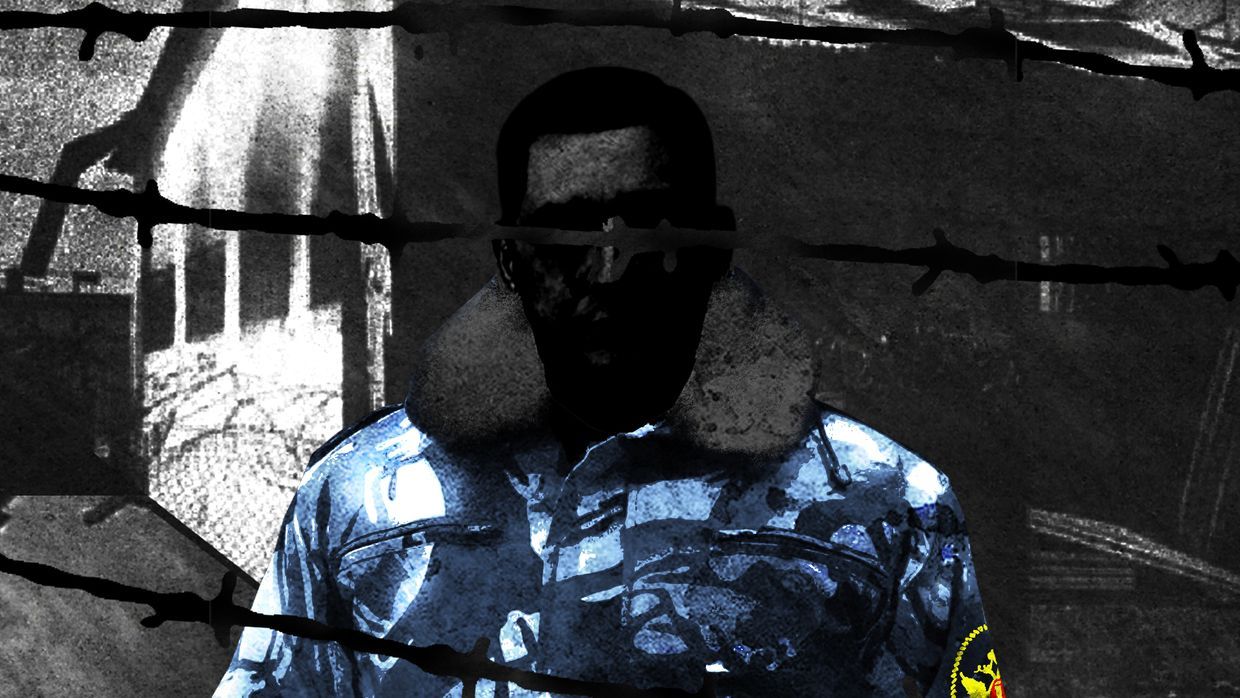
Schabas points out that mass killings of civilians are key to understanding whether genocide is taking place. But he remains skeptical whether the threshold for calling mass murder a genocide was reached in Ukraine.
"The larger the scale of the killing, the more reasonable is the conclusion that this is done with the intent to destroy the group. And I think that in practice, the worst months in terms of civilian casualties (in Ukraine) were the early months of the conflict. And that has declined," Schabas says.
"So the evolution of the crisis has not reinforced the argument that genocide is taking place," he says.
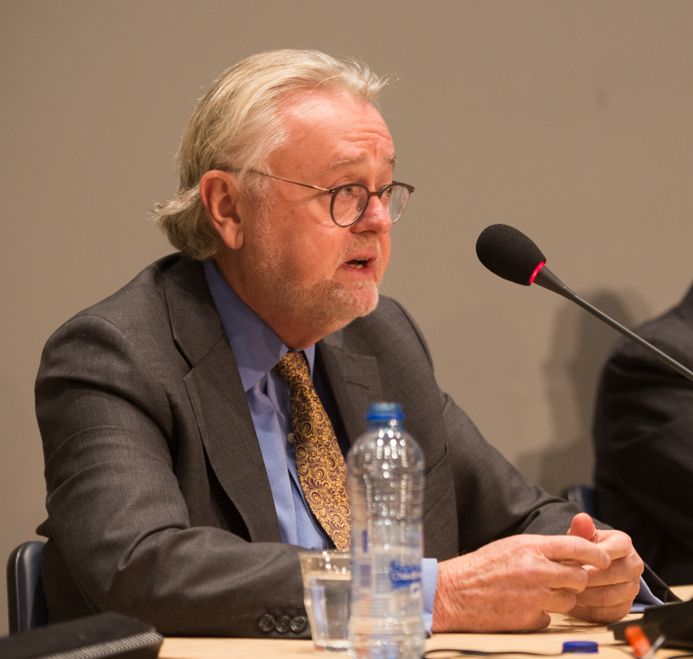
Ukrainian scholar Koval disagrees with Schabas.
The bulk of Russian violence happens on the occupied territories that are inaccessible by Ukraine and independent investigators, he says.
"With the liberation of more territories, with the liberation of Mariupol, we will discover more and more horrifying confirmations that a genocidal campaign was indeed unfolding there," Koval says.
"Therefore, we can agree with Mr. Schabas that we do not have much information about this growing dynamic of killings. At the same time, we must also understand that we simply do not have access to the territories where this dynamic will be made clear," Koval adds.
Are killings actually the main criterion to identify genocide?
The UN Convention on the Prevention and Punishment of the Crime of Genocide, known as the Geneva Convention and the Rome Statute, define genocide as acts committed with intent to destroy, in whole or in part, a national, ethnical, racial, or religious group.
The acts are killing, causing serious bodily or mental harm, inflicting conditions calculated to bring about physical destruction, imposing measures intended to prevent births, and forcibly transferring children of the group to another group.
"Out of the five ways of committing genocide described in the UN Convention and the Rome Statute, killing is only one of them. The other four are not related to killing. And so, in terms of how the Convention and the Rome Statute are formulated, it is not entirely correct to focus exclusively on killing," Koval says.

"When certain damage is done, or conditions are created, or deportation takes place, this leads to physical destruction in the end. For example, physical destruction (may be) the ultimate goal but first (they) want to deport the children so that the group cannot continue to exist," he explains.
On the other hand, Schabas refers not only to the legal definition of genocide but also to the case law, which tends to take a much narrower view of genocide.
"Killing, although it's only one of five punishable acts, is clearly the most important," Schabas says.
"In the absence of killing the large number, it's very difficult to infer an intent to physically destroy the group. The Genocide Convention speaks of the destruction of a group. But the case law, that is, the international courts and tribunals that have applied it, have all taken the view that this requires the physical destruction of the group," he adds.
Is the forcible transfer of tens of thousands of Ukrainian children to Russia considered an act of genocide?
According to Finkel, yes.
"The transfer of children is a much stronger evidence of genocide than killings of civilians. There is no military explanation," Finkel says.
"There is no strategic goal in taking thousands and thousands of Ukrainians from their families and forcing them to become Russians against their will. It is done only with the intent to force them to not be Ukrainian and to become Russians," he adds.
Professor Schabas once again points to case law and disagrees.
"The children are not being exterminated. The whole theory is that the children being transferred from one group to another lose the identity of the group; they become assimilated into the group to where they've been transferred. And so it's incompatible in a way with the requirement that the intent be to physically destroy the group. The courts so far have made no exception for that requirement. The case of forcible transfer has never been prosecuted, really, by an international court," he says.
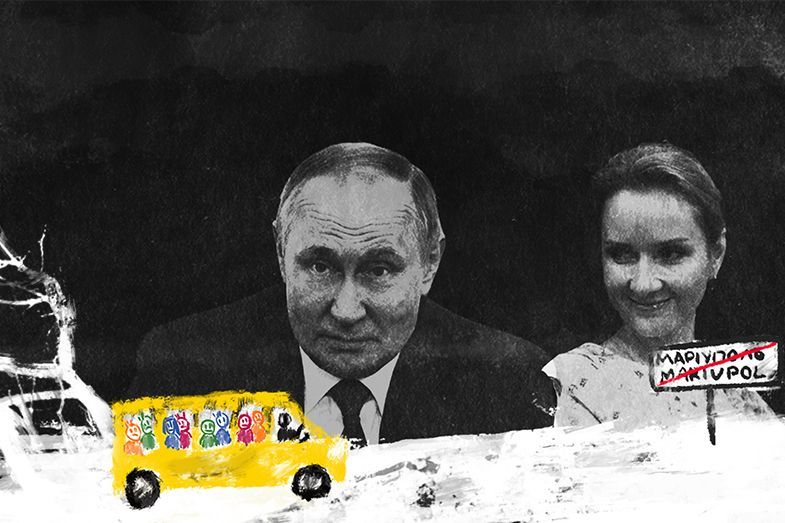
Koval says Ukrainian cases should not be viewed through the lens of the existing case law.
"Indeed, the case law forces us to believe that genocide must be aimed at physical destruction. However, this case law was formed on the basis of specific cases, such as Rwanda and Srebrenica. In other contexts, courts may take a more nuanced approach to assessing the situation."
Beyond the committed acts, what needs to be done to prove genocide?
All of the three scholars agree – given the phrasing of the UN Convention and the Rome Statute, the most important evidence is the intent to destroy the Ukrainian nation in whole or in part.
"Even if you kill one or two people, if it can be demonstrated unequivocally that there was an intent to destroy the group, genocide has been committed," says Schabas.
"The difficulty in proving genocide is rarely in proving that there are elements that point to genocidal intent. We have them. We have them in the case of the conduct of Russian forces and of Russian agents in Ukraine and outside Ukraine. But because they are basically deductions, inferences that we make based on facts, based on the conduct, they have to be so convincing that we can eliminate any other possible explanation," he adds.
"Certainly, the propaganda and racist, provocative statements are evidence of genocidal intent. But, in general, courts have been reluctant to assign too much significance to them. It's not easy to distinguish between hatred, crimes of hate speech, and crimes of genocidal intent. But could it provide evidence of genocidal intent? Yes, indeed, it could," Schabas says.
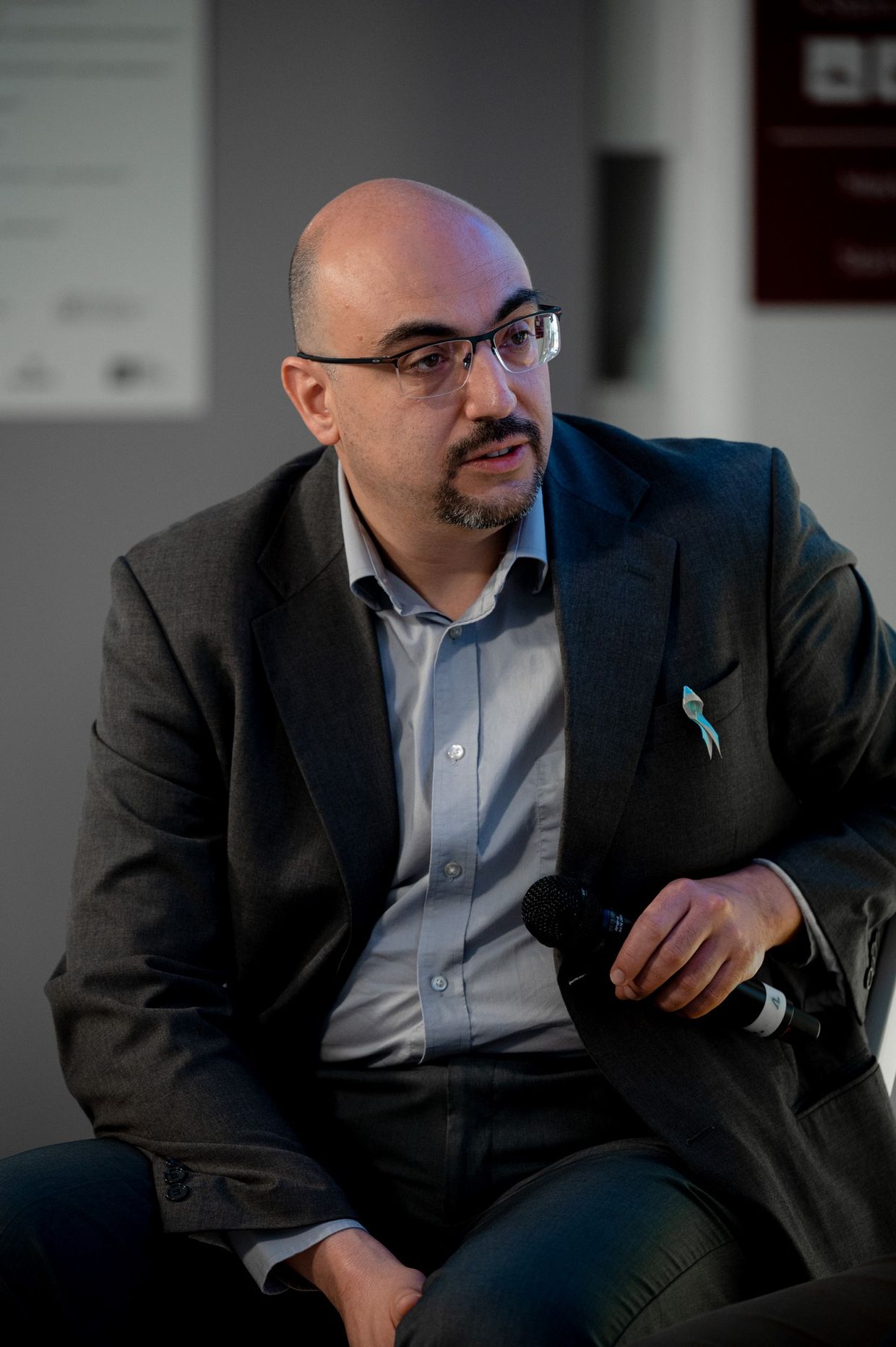
The requirement to prove genocidal intent unequivocally sets the bar very high and makes genocide hard to prove in a court of law. However, Professor Finkel thinks that this intent is clearly demonstrated by Russian propaganda and Russian officials' statements.
"In the case of Russian violence, I was surprised that they almost advertised it. They are very open about their intent to destroy Ukrainians as a group, to destroy Ukraine, to russify people, to kill millions, and to change their identity completely. And it comes from different sources. For example, state media, where everything that is being said and broadcast is approved and tightly controlled by the state," Finkel says.
"You look at the state media, you look at what the state officials that determine security policy are saying, and you will have more than enough to work with. So I think in this case, establishing intent will not be a problem at all."
Given how difficult it may be to prove genocide, should Ukrainians even try to do so?
To Professor Schabas, the discussion on whether Russia is committing genocide in Ukraine is, in some ways, counterproductive.
"I think a lot of energy gets consumed in quarreling about whether something is or is not genocide. Whereas there's not much of a quarrel about war crimes being committed. This is straightforward. There's lots of evidence of them, and this is not going to lead to great debates. And the same, I think, for the crimes against humanity. So in that sense (talks about genocide) becomes in some ways a distraction," he says.
Professor Finkel agrees that it's hard to prove genocide in court, so it may be more reasonable for the prosecution to settle for other charges.
"But remember: genocide is a legal term, but it's also an analytical term. The level of proof that is required to put someone in jail for the crime of genocide is different from looking at the event as a whole and saying genocide is happening. Beyond a court of law, I don't see any reason not to use the term analytically to describe what is going on if it does fit the criteria. And I would not have used it if it didn't," Finkel says.
Koval insists that it's necessary to use the term "genocide" to fully explain the war Russia is waging in Ukraine.
"Genocide is the most appropriate term to explain the motives of the Russian Federation, the motives of individual leaders of the Russian Federation, and to explain how the current conflict fits into the chain of historical events. That is, when we want to understand what the reasons are for the suffering of Ukraine at the hands of the Russian state and representatives of the Russian state, we must use the term 'genocide' to tell this story."

